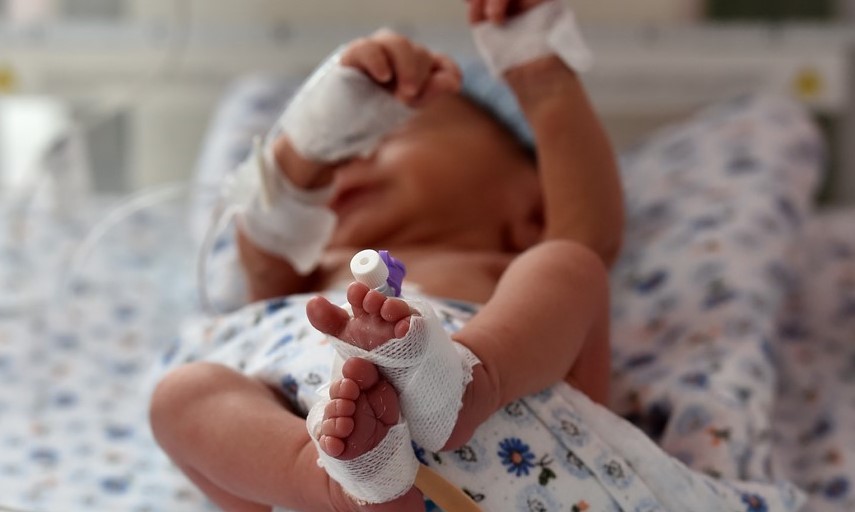The UCSF Health Center for Clinical Genetics and Genomics has entered into a collaboration with the Division of Neonatology at UCSF to conduct Rapid Whole Genome Sequencing (rWGS) on critically ill children in the Neonatal Intensive Care (NICU) and Pediatric Intensive Care (PICU) Units.

When critically ill newborn babies are transferred to the NICU, the underlying causes of their illness are not always clear. This can lead to a lengthy diagnostic odyssey that may involve painful and risky procedures. In many cases, the underlying cause is genetic. However, standard genetic tests may take as long as several weeks to produce results.
Rapid Whole Genome Sequencing can produce a much quicker diagnosis in as many as 50% of children. With a turnaround as fast as 48 hours, vital time can be gained and suffering avoided for fragile babies.
The UCSF rWGS initiative is starting in May 2020, with a preliminary run through August 2020. This pilot study will bring rWGS to patients at UCSF Benioff Children's Hospital San Francisco, through a unique collaboration between UCSF and Rady’s Institute for Genomic Medicine.
The initiative builds on an ongoing study at UCSF Benioff Children’s Hospital Oakland that is part of Rady's Project Baby Bear. In that study, 25 babies so far have undergone rapid or ultra-rapid whole genome sequencing testing. In 16 cases, the tests revealed a genetic diagnosis, which in 14 children led to a change in how their care was managed. These changes included different medications or treatments; avoiding unnecessary tests and procedures; and in some cases, a redirection of care. rWGS not only reduced the time to reveal a clear genetic diagnosis, it also significantly shortened the length of stay at the hospital and saved cost.
The new partnership will involve medical geneticists and neonatologists at both locations, working together, to coordinate tests, provide timely answers for anxious families, and determine the best care options for each child.
The data gathered from these genomic tests will also provide enormous opportunities for research. By adding de-identified data to the UCSF Information Commons, scientists can analyze genetic diseases in a larger context, create models, and discover new insights into pediatric health.
"We know that rapid whole genome sequencing can end the diagnostic odyssey in as many as 50% of children" said Aleksandar Rajkovic, MD, PhD, Chief Genomics Officer of UCSF Health, who is leading the study. "This is especially useful in the intensive care units, where undiagnosed diseases are common, and many are due to genetic pathology. In the future, we want all babies at both our Mission Bay and Oakland hospitals to have access to this advanced technology."
Leading collaborators in the initiative include Yao Sun, MD, PhD, and Emin Maltepe, MD, PhD, in the Division of Neonatology; Ophir Klein, MD, PhD, Joseph Shieh, MD, PhD, and Anne Slavotinek, MD, PhD, in the Division of Medical Genetics; and Art D'harlingue, MD, Medical Director of the Neonatal Intensive Care Unit at BCH Oakland.
For more information on this study contact Sawona Biswas.
